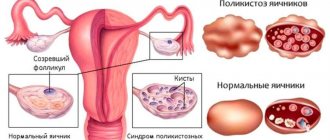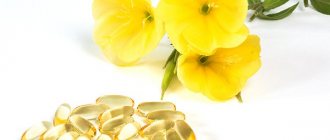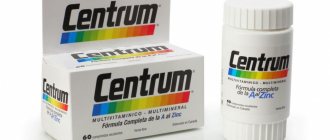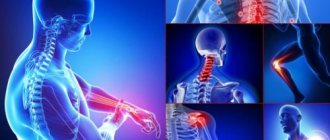Women's nutritional needs change with age. Thus, in their youth, girls especially need a sufficient level of iron in their food, and after 50 years, the need for this mineral decreases. Also, the need for nutrients depends on lifestyle, concomitant diseases and medications taken.
Therefore, women over 50 years of age who suffer from chronic diseases should discuss the choice of vitamin supplements with their doctor. There are several general rules, following which you can maintain vigor, activity, health and beauty for a long time.
Should you take vitamins during menopause? What nutrients are especially needed during this period? Which complexes are worth paying attention to and why? Therapist, nutritionist, and nutritionist Tatyana Tarnovskaya .
photo from the personal archive of Tatyana Tarnovskaya /
What vitamins does a woman need after 50 years of age?
Vitamins are usually divided into two groups. The first is water-soluble, they do not accumulate in the body and must be regularly supplied with food. The second is fat-soluble, this is a whole range of nutrients, including vitamins A and D, E and K.
Substances of the first group perform many significant functions in the body.
IN 1. Helps cells convert nutrients into energy. Women who take diuretics may experience its deficiency.
AT 6. Participates in the metabolism of macroelements, the functioning of the nervous system, and the formation of the body’s immune defense. Its deficiency can occur in women who are overweight.
AT 12. Important for the health of the nervous system, sound sleep and stable mood. It is also involved in the production of red blood cells. With dietary restrictions, for example, following a strict diet or poor absorption in the intestines, the body may suffer from a lack of this substance.
Vitamin C. Works as an antioxidant: protects cells from oxidative stress and associated premature aging. It also plays an important role in the functioning of the immune system and is involved in the production of collagen, which not only maintains skin elasticity, but is also necessary for joints, tendons and bones. A deficiency of the substance can occur due to smoking and in winter, when the choice of foods rich in ascorbic acid is limited.
Fat-soluble vitamins can accumulate and remain in the body for some time:
A - important for eye health, immunity and antioxidant protection of the body;
D - without it, healthy absorption of calcium by bones is impossible, and its deficiency often manifests itself in people after 60 years of age;
E - works as an antioxidant, helps maintain strong immunity and vascular elasticity;
K - supports healthy blood clotting and is also involved in the production of proteins necessary for bone strength.
“Women over 50 produce fewer sex hormones, and they all have a fatty structure and are close relatives of cholesterol,” comments general practitioner, nutritionist, and nutritionist Tatyana Tarnovskaya. ― To maintain hormonal balance, we primarily need fat-soluble vitamins D, A, E and K. Vitamin K strengthens bones by bringing calcium into them, and it acts in conjunction with vitamin D. This ligament is especially useful during menopause because it prevents age-related fragility bones (osteoporosis) and fractures, which often affect older people.”
Also, according to the expert, a decrease in estrogen has a bad effect on brain activity and memory. B vitamins and lecithin will help correct age-related changes. For women, soy lecithin is ideal, which also contains phytoestrogens - plant analogues of the hormone estrogen.
Menopause: first symptoms and age
Menopause is manifested by the following symptoms:
- Irregular periods
- Unstable hormonal levels
- Hot flashes, sweating
- Frequent mood swings, depression, anxiety
- Decreased sex drive
- Deterioration of skin condition, hyperemia
- Sleep disorder
- Absent-mindedness
- Dry mucous membranes
- Enuresis
- Weight gain
There are three stages of menopause: premenopause, menopause and postmenopause.
Premenopause
Onset: 40–45 years, lasts up to ten years. Signs of premenopause:
- Destabilization of menstruation
- Frequent urination
- Increased thermal sensitivity
- Weight gain
- Skin problems
If you start to notice the above, it's time to see a doctor. Do not ignore the first signs so as not to develop problems with the heart, blood vessels and nerves in the future.
Menopause
Occurs between the ages of 49 and 55 years. At this stage it is impossible to conceive a child. Menopause is characterized by:
- Dysmenorrhea
- Aging skin
- Tides
- No lubrication in the vagina
- Brittle bones
Hot flashes are the most noticeable sign of menopause. The duration is approximately two minutes. Manifestations:
- Slight disorientation
- Feeling of heat in the upper body
- Hyperemia of the face and chest
- Sweat, palpitations
- Anxiety
Hot flashes do not pose a health risk. When this state occurs, it is advisable to find complete peace and take a deep breath. You can exclude the reasons that aggravate its manifestation: control emotions, give up spicy food, coffee and alcohol, do not wear excessively warm clothes, minimize stay in a stuffy room.
Important!
If hot flashes cause persistent discomfort, see a doctor.
Postmenopause
The third stage of menopause, postmenopause, begins around age 55 and lasts for about six years. The ovaries completely stop functioning. Postmenopausal symptoms:
- Pubic descent
- Lack of lubrication in the vagina
- Hair loss on the head
- Decreased vision
- Weight gain
Let's talk separately about perimenopause.
It begins with perimenopause and ends one year after the last menstruation.
As research by scientists from the Kharkov National Medical University has shown, one of the leading complaints with which 20-30% of women in the perimenopausal period turn to a gynecologist is uterine bleeding. They occupy a leading place among the reasons for women's hospitalization in hospitals. Excessive blood loss creates a risk of iron deficiency anemia, increases the risk of developing cancer, causes disruption of sexual life, and reduces quality of life. A common cause of uterine bleeding in the perimenopausal period is endometrial polyps. In women of older age groups, bleeding can occur not only with benign changes in the uterine mucosa, but also against the background of endometrial cancer. Peak incidence occurs between 55 and 65 years of age.
Should you take vitamins during menopause?
The amount of nutrients supplied from food may not meet the needs of the female body during menopause. Most often at this time there is a lack of vitamins D and group B.
Deficiency of the first is associated with insufficient duration of exposure to the sun, since it is under the influence of sunlight that the substance is formed in the skin. With age, activity decreases, women spend less and less time outdoors. The habit of protecting the body from the sun, or rather its aggressive ultraviolet radiation, which causes accelerated aging of the skin and increases the risk of cancer, also has an effect.
The lack of B vitamins is explained by changes in the functioning of the digestive system. Thus, with age, the composition of gastric juice changes, which is why vitamin B12 is absorbed much less well, and the risk of its serious deficiency increases.
“If a woman, even after 50 years, wants to maintain an attractive appearance, a sound mind and a sober memory, it is definitely worth taking vitamins,” notes general practitioner, nutritionist, and nutritionist Tatyana Tarnovskaya. - It is also important to consider that if you live in an ecologically clean area, grow your own food in the garden, then you can count on a nutritious diet. But if you are a resident of a polluted metropolis and buy food at a nearby supermarket, then you should buy additional vitamins at the pharmacy.”
pixabay.com/
High sugar, diabetes
Gymnema
The Indian name of this evergreen vine speaks for itself - “sugar destroyer.” Gymnema extract is rich in gymnemic acid, which slows down the absorption of excess sugar from food and helps restore pancreatic cells that produce insulin.
Herbal infusions also help maintain carbohydrate metabolism and normal sugar levels. For example, teas based on galega grass, hawthorn fruits, lingonberry leaves, currants and nettles, buckwheat grass and flowers.
Taurine
It is an essential amino acid that has been called the “miracle molecule” for its many properties. One of the striking abilities of taurine is its participation in the regulation of blood glucose levels. So pay special attention to it!
The best vitamins for women after 50-60 years
Among the B vitamins, the expert recommends choosing not just any, but in the active coenzyme form. In this case, their chemical structure perfectly matches the body's needs, and the body does not have to waste energy and enzymes to convert the resulting nutrient into a useful substance.
It is important that the multivitamin complex contains fat-soluble vitamins, as well as calcium. This combination will help protect bones from osteoporosis and significantly reduce the risk of fractures.
“Vitamins will help smooth out the symptoms of menopause,” the expert notes. “And the consequences of their deficiency are broken bones from osteoporosis, hot flashes with obvious sweating, wrinkled skin, pathological forgetfulness and a grumpy character.”
Also, according to Tatyana Tarnovskaya, women will benefit from herbal preparations containing biologically active substances - indinol, borage (borage) oil, green tea extract. These natural supplements prevent the development of oncology, as they have antitumor activity.
Contraindications and side effects
Vitamins and microelements should be taken in consultation with your doctor. Some of them are contraindicated for specific diseases or during treatment with any medications. You cannot use nutritional supplements if you have an individual intolerance to the components or if there is an excess content of vitamins and minerals in the blood. Also, some of the substances cannot be absorbed when used together. If they are not part of a comprehensive supplement, it is better to separate their intake. Some drugs can cause side symptoms. For example, an allergic reaction, nausea, vomiting, headache, dizziness, bowel dysfunction and other phenomena.
Insomnia
Tryptophan
Like taurine, tryptophan is an essential amino acid. During the day, it produces the “happiness hormone” serotonin, which in the evening begins to turn into melatonin, the “sleep hormone” that helps us fall asleep quickly and get enough sleep in a shorter time.
It's no secret that many synthetic sleeping pills can be addictive. Shouldn't we give preference to much safer herbal remedies? They have an excellent calming effect, help you fall asleep faster and support deep sleep. Such preparations can contain both well-known herbs, such as motherwort, valerian, lemon balm and mint, and exotic ones - eschscholzia, passionflower and griffonia.
Magnesium
This is an essential anti-stress element, and its deficiency negatively affects the state of the nervous system. In addition, few people know that magnesium takes part in the synthesis of melatonin. This is why a deficiency of this mineral can cause insomnia. You can fill the need for magnesium by taking it additionally in an easily digestible chelate form.
Phytolax fruit bar, 50 g (fruit-based laxative)
99 ₽
Dietary supplement NOT A MEDICINE
Vision problems
Blueberry anthocyanins
Blueberries are, without a doubt, the main “eye” berry! It is rich in anthocyanins, which help maintain visual acuity as in youth, maintain the normal condition of cell membranes and eye tissues. The action of anthocyanins is complemented and enhanced by a complex of vitamins, the already familiar taurine, lutein, and zinc.
Omega 3
And again Omega-3 is on stage! Both in the form of individual preparations and in Omega 3-6-9 complexes, they help maintain vision, reduce the risk of retinal degeneration, help eliminate inflammation, eye irritation, and even reduce the manifestations of dry eye syndrome.
Blueberry Forte with lutein, 100 tablets, Evalar
266 ₽
Dietary supplement NOT A MEDICINE
Bibliography
- Gaskins AJ, Mumford SL, Chavarro JE, Zhang C, Pollack AZ, Wactawski-Wende J, Perkins NJ, Schisterman EF. The impact of dietary folate intake on reproductive function in premenopausal women: a prospective cohort study. PLoS One. 2012;7(9):e46276.
- Takahashi M, Miyashita M, Park JH, Kawanishi N, Bae SR, Nakamura Y, Sakamoto S, Suzuki K Low-volume exercise training and vitamin E supplementation attenuates oxidative stress in postmenopausal women. J Nutr Sci Vitaminol (Tokyo). 2013;59(5):375-83.
- Gavisova A.A., Tverdikova M.A., Balushkina A.A. Menopausal syndrome: features of the treatment of psychoemotional disorders. RMJ. 2014. No. 8.
- Choay P, Lafond JL, Favier A. Value of micronutrient supplements in the prevention or correction of disorders accompanying menopause. Rev Fr Gynecol Obstet. 1990 Dec;85(12):702-5.
THIS IS NOT AN ADVERTISING. THE MATERIAL WAS PREPARED WITH THE PARTICIPATION OF EXPERTS.










